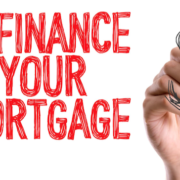Buying at auctions: What you should be aware of this spring
As Sydney’s weather starts to warm up, so does the influx of properties about to hit the market. Reports predict that an increase in property listings in Spring, could potentially benefit buyers as vendors look to offload their properties before Christmas. Auctions in recent times have become an attractive way of selling with approximately 30% of properties using this method. Yet it is important to be aware of the buyer requirements and costs involved when bidding in an auction. Be spring ready. Speak to Marco Scannone, an expert broker on 0405 252 808.
Auctions vs Private Treaty Sales
In the current competitive property market, auctions have become an effective way to determine the true monetary value of a home. Auctions create a competitive bidding environment that lets the real value shine through. It is important you are aware of the buyer requirements and costs when purchasing a property at auction as opposed to a private treaty sale.
Unlike private treaty sales, where the price can be negotiated between the buyer and vendor, auctions move at a quicker rate. Once the hammer falls, the sale is final. This means the buyer is required to pay often a 10% deposit on the spot, locking in the purchase of the property. Property purchased at auction has no cooling off period, which means you must be confident about the purchase decision.
Top Buyer Risks
#1 Lower post property valuations– A significant difference between a private treaty sale and auction is the property valuation process. Prior to paying the deposit for a property sold via private treaty, your Broker will order a bank valuation. In most cases the Bank valuation will confirm the Contract price. This is very important as banks will lend against the Value confirmed in the Valuation report and not the contract of sale. When you buy a property at an auction, you may be at risk of overpaying for that property (high levels of emotions, bidding wars, cashed up investors etc..). In this case the Bank Valuation might come in lower than the contract price but you only find out when it’s too late because you have already paid the 10% deposit and can’t pull out of the deal! The buyer will have to come up with the shortfall of funds. Of course there are precautions you can put in place to avoid being caught in this situation . Speak to Marco Scannone, an expert broker on 0405 252 808.
#2 Out of pocket costs– In anticipation of purchasing a property, a buyer usually conducts a building and pest inspection. This can be a costly process and an out of pocket expense if the potential buyer does not win the property at auction.
What if I Change My Mind?
If you buy at an auction and have changed your mind or cancelled the sale, then you may be up for costly penalties and ramifications. The contract for the sale will outline the consequences of withdrawing from the binding agreement. This contract will be likely to include default penalties as well as compensation for any losses experienced by the seller. In addition, other fees will include legal and conveyancing fees, building valuations and inspection costs. The most common situation in which both a seller and buyer can rescind the contract for the property sold at auction is if any of the parties dies or is declared bankrupt prior to settlement.
Steps To Take Before The Auction
Know the costs and commitments required in an auction before you make a bid. These are the steps to consider prior to action.
- Do your research– Aside from researching the sale and clearance rates as well as median house price for the area, it is important to understand the local marketplace in the area. In addition, look into the current valuation report and succeeding reports in the future.
- Undertake pre-purchase inspections- This can be a costly exercise if you don’t win the property at an auction. Organise pest and building inspections prior to auction day. If the report comes back and identifies key faults, then ask the selling agent if you can take your builder for an inspection of the property to identify likely repair costs.
- Ask your solicitor to check the contract– Do not purchase a property until your solicitor gives you the all clear. Contracts can be complex and therefore it is important to consult legal advice.
- Arrange loan pre-approval– Speak to Marco Scannone today
- Know your limit and stick to it– Avoid bidding over your budget.
- Register to bid
- Get your cheque book ready- If you’re the winning bidder on the day, you’ll be required to pay a deposit of 5-10% of the purchase price on the spot.
- Learn a few Tips and Tricks the pros like Buyers Agents and Real Estate Professionals use to stall the auction and intimidate bidders when buying at auction on behalf of clients….Speak to Marco Scannone, an expert broker on 0405 252 808 to learn more about these tactics.






